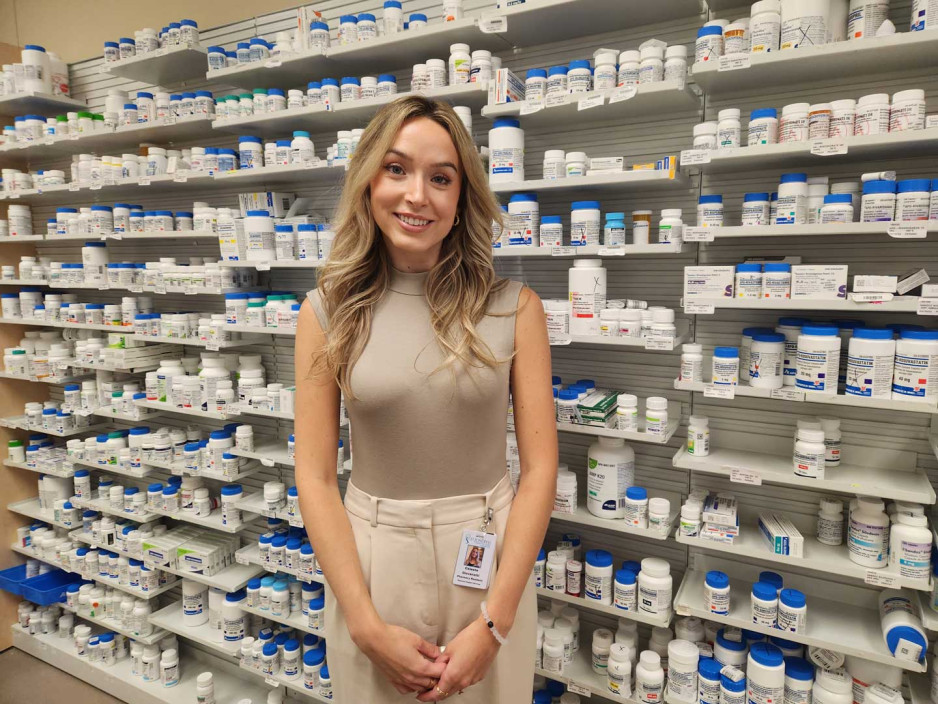Finding her niche, discovering her passion
Celeste Giovanatti wants to be the best pharmacist she can be. She also wants to play a role in reducing what she describes as “fractured care”, which she noticed far too often during placements in community pharmacies throughout her four years of pharmacy school.
Now, as a new pharmacy graduate, Giovanatti hopes to accomplish both goals at St. Joseph’s Health Care London. She is only the second resident accepted into the organization’s unique pharmacy residency program, which launched last year.
The intensive, one-year program is one of few in Canada providing hands-on training in team-based, post-acute care and outpatient hospital care for chronic diseases and conditions. With placements at all five St. Joseph’s sites and in a variety of clinical settings, the pharmacy resident completes core training within the Pain Management Program, Rheumatology Centre, Palliative Care Unit, Rehabilitation Program, and Mental Health Care Program. The resident also undertakes up to eight weeks of elective rotations, with the current options ranging from forensic mental health to perioperative care, infectious diseases, antimicrobial stewardship, and women's health with a focus on sexual assault and domestic violence.
Giovanatti, who completed an undergraduate degree at Western University and the pharmacy program at the University of British Columbia, is excited by all St. Joseph’s has to offer, particularly how the residency program contributes to continuity of care.
“When I was looking for a residency program, I wanted something different and St. Joseph’s extensive expertise in outpatient care was very appealing,” says Giovanatti. “I like the one-on-one care that St. Joseph’s pharmacists provide to outpatients to support the transition to care in the community and to address drug therapy problems before they happen.”
She also appreciates St. Joseph’s culture of caring for patients and one another, and the supportive learning environment for trainees, she adds.
While pharmacy rotations during pharmacy school are compulsory, residency after graduating and passing the certification exams is voluntary. A residency is additional training that provides pharmacists with proficiency in a particular area. There are only 150 residency spots across Canada for year one pharmacy residents but they are predominantly in hospital acute care pharmacy. The scope of St. Joseph’s pharmacy residency program is unparalleled.
Giovanatti follows in the footsteps of the inaugural resident Sumani Vij, who is now moving on with her goals solidified and confidence bolstered by her experience in the program.
“The program was incredibly valuable, particularly because of the early exposure to both research and teaching—opportunities that many pharmacists don’t typically get so early in their careers,” says Vij. “This experience also strengthened my clinical decision-making process, which I feel confident using in both inpatient and outpatient settings.”
Vij is planning to continue her career in an academic hospital setting with a focus on teaching and research. Inspired by the skills, insights and mentorship she received during her year at St. Joseph’s, Vij says the program reinforced her passion for continuous learning and patient advocacy.
“The residency program positioned me well for a future in pharmacy services.”
Giovanatti is counting on an equally rewarding experience. With a particular intertest in psychiatry, chronic pain and women’s health, she looks forward to “exploring all the avenues and options available to me as a pharmacist, becoming the best I can be, finding my niche and discovering my passion.”
